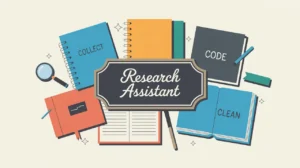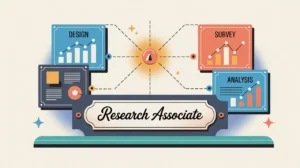What Does the User Support Specialist Role Involve?
A User Support Specialist is responsible for providing technical and functional assistance to end users of organizational systems, platforms, or services. They act as the first point of contact for user inquiries, troubleshooting issues, resolving problems, and escalating complex cases to relevant teams. Their work ensures that users have a smooth and reliable experience, supporting productivity and adoption of digital tools and services.
In nonprofits and social enterprises, User Support Specialists play a crucial role in sustaining daily operations by helping staff, partners, and beneficiaries navigate platforms and technologies that underpin program delivery, communications, finance, and data management.
At What Level does this Role Operate?
Mid Level: User Support Specialists typically report to a Support Lead, Systems Manager, Technology Lead, or Operations Manager. They operate with moderate autonomy, managing user support requests, maintaining documentation, and identifying recurring issues that may require structural solutions. They often work closely with IT, systems, and program teams to ensure that support aligns with organizational needs.
Relative Employability: User Support Specialist roles are widely applicable across organizations that rely on digital platforms, from CRMs and data systems to learning tools and communication technologies. As nonprofits increasingly adopt integrated digital ecosystems, the demand for skilled support specialists continues to grow.
Relative Pay Scale: User Support Specialists generally occupy the mid pay band, positioned above assistant roles but below managerial positions. Their compensation reflects their specialized technical knowledge and problem-solving responsibilities.
What are the Key Responsibilities and Activities?
- Serve as the primary point of contact for user support requests, inquiries, and troubleshooting
- Diagnose and resolve technical or operational issues related to organizational platforms and systems
- Escalate complex problems to relevant technical teams while maintaining clear communication with users
- Maintain accurate records of support requests, resolutions, and recurring issues in ticketing systems
- Develop and update user support documentation, FAQs, and knowledge base articles
- Provide one-on-one assistance or group training to help users navigate tools effectively
- Collaborate with IT and systems teams to identify patterns and recommend system improvements
- Monitor platform performance and user feedback to proactively address issues
- Support onboarding processes by helping new users set up and learn key systems
What Core Competencies and Qualifications are Needed?
Required Qualifications and Experience
The following reflect common qualifications and experience expected for this role, while recognizing that pathways may vary by context, organization, and region.
- Relevant academic background or vocational training in IT, information systems, customer support, or related fields
- Several years of experience in technical support, help desk, or user assistance roles
- Familiarity with common organizational platforms such as CRMs, databases, communications tools, and LMS systems
- Strong problem-solving and troubleshooting skills
- Clear communication abilities for interacting with both technical and non-technical users
Key Competencies
- Technical proficiency across relevant platforms and tools
- Strong diagnostic and problem-resolution skills
- Excellent written and verbal communication
- Patience, empathy, and user-centered service orientation
- Organizational skills for managing multiple support requests
- Collaborative mindset for working with IT and program teams
How are AI and Automation Shaping this Role?
An AI-native User Support Specialist can leverage AI-powered help desks, chatbots, and diagnostic tools to resolve common issues automatically, categorize tickets, and suggest solutions in real time. AI can also analyze support trends to predict recurring problems and optimize knowledge base content, allowing specialists to focus on complex cases and proactive user support.
What Career Pathways and Transferable Skills are Associated with this Role?
User Support Specialists can progress to roles such as Support Lead, Systems Manager, Technology Lead, or Product Manager, depending on their technical interests. Their skills in troubleshooting, user engagement, and systems understanding are transferable to roles in IT, digital operations, training, and product implementation. Over time, they may lead support teams, manage platform ecosystems, or shape user experience strategies across the organization.







